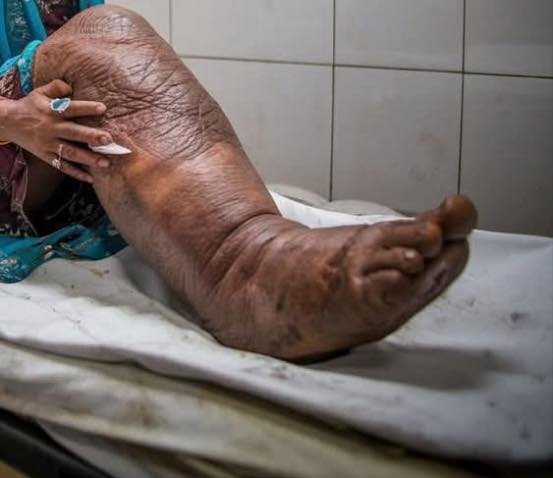Human beings are naturally wired for connection. From the moment we are born, we seek closeness, comfort, and companionship. This innate need for bonding is not only essential for survival but also for emotional fulfillment throughout life. Ideally, closeness—whether emotional, mental, or physical—serves to deepen trust, strengthen bonds, and foster a sense of security between two individuals.
But what happens when that connection is formed with the wrong person? When trust, respect, and values are not aligned, a relationship can shift from being a source of comfort to a source of stress. What may have started as a seemingly harmless bond can leave behind long-lasting emotional scars, strained friendships, damaged reputations, and even challenges in self-image and future relationships.
In an age where casual connections and short-term relationships are common, it is more important than ever to reflect on the impact of closeness shared with someone who is not emotionally compatible or respectful of your needs. Beyond the initial excitement, such experiences can shape how we see ourselves, how we approach others, and how we build—or block—healthy relationships in the future.
This article explores the emotional, social, and personal consequences of misplaced closeness, along with insights into how to heal, rebuild, and grow stronger. By unpacking these layers, we can better understand the risks, the lessons, and the opportunities hidden within painful experiences.
1. The Emotional Aftermath: Regret, Confusion, and Self-Doubt
The most immediate impact of forming a bond with the wrong person often shows up in the form of emotional distress. When closeness is not rooted in mutual respect or shared values, individuals may find themselves experiencing regret, emptiness, or even a sense of betrayal.
Some common emotional consequences include:
- Regret: Looking back and wishing the encounter had not happened or unfolded differently.
- Confusion: Struggling to understand why the connection felt so strong in the moment but hollow afterward.
- Self-doubt: Questioning one’s judgment, worth, or ability to make good decisions.
- Heartache: Feeling emotional pain when deeper feelings were not reciprocated.
These emotions can be particularly difficult because closeness is often intertwined with vulnerability. When someone allows another person into their personal space—emotionally or otherwise—they open themselves up to being hurt. The challenge lies in the difficulty of separating physical or emotional connection from attachment, as human emotions rarely follow logic.
Real-Life Example
Consider someone who enters into a relationship hoping for mutual care, only to later discover that the other person never had the same intentions. Even if the situation was labeled as “casual” at the start, emotions can evolve unexpectedly, leaving one person deeply invested while the other remains indifferent. This mismatch can result in painful cycles of hope, disappointment, and confusion.
2. The Invisible Chain: The Struggle of Attachment
From a biological perspective, closeness releases bonding hormones such as oxytocin, often referred to as the “connection hormone.” This chemical reinforces feelings of trust and attachment. While oxytocin is wonderful in supportive relationships, it can create inner conflict when released in unhealthy or unbalanced dynamics.
This natural process explains why some people feel deeply attached after even brief interactions, while others may remain detached. When expectations don’t match, one individual may interpret the bond as meaningful, while the other sees it as temporary.
This imbalance can lead to:
- Misinterpretations of intent
- False hope for deeper connection
- Difficulty moving on emotionally
- Prolonged inner struggles
3. The Ripple Effect: Social and Relational Consequences
The impact of misaligned closeness doesn’t stay private. It can ripple outward, affecting friendships, family dynamics, and even reputation.
a. Broken Trust and Betrayal
If the relationship overlaps with existing commitments, the fallout can be severe. Betrayal can fracture friendships, dissolve partnerships, or create divisions within a community.
b. Damaged Friendships
Even when no betrayal occurs, misunderstandings or gossip can harm social groups. A single rumor can escalate into drama, leaving individuals feeling isolated.
c. Mismatched Expectations
One person’s dream of “something serious” may clash with the other’s intention for a “short-term connection.” These mismatches almost always end in disappointment or conflict.
d. Social Judgment
In close-knit or traditional communities, being associated with the “wrong” person can bring scrutiny or criticism. This external pressure can intensify inner struggles, contributing to anxiety and damaged self-esteem.
4. Health Considerations and Emotional Stress
Closeness, when not approached responsibly, can also lead to health-related worries. While this article avoids explicit medical detail, it’s worth noting that neglecting responsibility in relationships can carry consequences beyond emotions.
- Health Anxiety: Concerns about personal well-being can cause stress even if no actual harm occurs.
- Unexpected Responsibilities: Unplanned challenges—such as sudden caregiving or lifestyle adjustments—can add strain.
- Emotional Turmoil from Health Scares: The fear of “what if” often leaves lasting anxiety, regardless of outcomes.
The stress linked to these situations is often just as impactful as the event itself, adding another layer of emotional weight.
5. Long-Term Impact on Self-Perception
Perhaps the most enduring effect of misguided closeness is the way it reshapes self-perception and influences future relationships.
a. Trust Issues
People may become overly cautious, fearing betrayal or disappointment in every new relationship.
b. Validation-Seeking
Some may chase repeated connections as a way to feel valued, but this often deepens emptiness instead of resolving it.
c. Difficulty Identifying Healthy Bonds
After harmful experiences, individuals may struggle to distinguish supportive relationships from toxic ones.
These struggles highlight the importance of reflection and healing after disappointment.
6. Transforming Pain Into Growth
Painful experiences are not the end of the story—they can be the beginning of personal growth. Every challenge offers lessons, and with the right mindset, individuals can turn regret into wisdom.
Key lessons include:
- Recognizing self-worth: Understanding that one’s value is not defined by a single mistake.
- Setting clear boundaries: Establishing what behaviors are acceptable.
- Choosing alignment: Prioritizing partners who share values and respect.
- Seeking support: Talking with friends, family, or counselors to process experiences.
- Practicing forgiveness: Letting go of guilt and focusing on healthier futures.
7. Building a Healthier Future
The ultimate goal after hurtful closeness is healing and growth. With reflection and intentional choices, individuals can build stronger, healthier, and more fulfilling relationships.
- Prioritize self-love: A person who values themselves will not accept disrespect.
- Focus on emotional compatibility: Beyond attraction, shared values and goals matter most.
- Be patient: Healing takes time, but each step builds resilience.
Conclusion: From Heartache to Healing
Closeness with the wrong person can cause emotional turmoil, strained social bonds, and inner conflict. Yet, these experiences do not define anyone’s future. Instead, they can serve as powerful catalysts for growth, wisdom, and stronger boundaries.
By learning from mistakes, recognizing self-worth, and choosing healthier connections, individuals can transform pain into resilience. At its best, intimacy—whether emotional or physical—is not just about the moment but about building a foundation of trust, respect, and mutual care. When approached with awareness, it enriches life rather than diminishes it.


